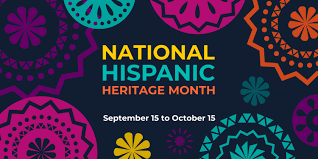“Truth”Most Secrets Benefits Unlocking”
Benefits and Advantages of Honesty in Everyday Life
Introduction:
In a world where honesty is often celebrated as a virtue, the act of tell the truth carries immense significance. Honesty, with its ethical undertones, is considered a fundamental pillar of our society, shaping the way we build relationships, conduct business, and make moral choices. Yet, like many aspects of life, the truth is not always a straightforward path; it is a complex terrain filled with both advantages and disadvantages.
In this exploration of the pros and cons of telling the truth, we delve deep into the multifaceted nature of honesty. From the foundations of trust and personal growth to the intricacies of social expectations and ethical dilemmas, we embark on a journey to understand the impact of truthfulness on our lives. Join us as we navigate the ever-evolving landscape of honesty, weighing its benefits and drawbacks in various aspects of our personal and professional existence.
So, fasten your seatbelts as we embark on a quest to unravel the mysteries of honesty and integrity, striving to strike a harmonious balance between the virtues of truthfulness and the complexities of the human experience.
Benefits of Tell the Truth:
- Building Trust: One of the most significant advantages of honesty is that it helps build trust in relationships. When you consistently tell the truth, people are more likely to believe and rely on your words, leading to stronger personal and professional connections.
- Strengthening Relationships: Honest communication fosters open and transparent relationships. It enables individuals to express their thoughts, feelings, and concerns genuinely, leading to better understanding and conflict resolution.
- Maintaining Integrity: Telling the truth aligns with personal integrity and moral values. It allows individuals to stand by their principles, even when faced with challenging situations.
- Reducing Stress: Living a truthful life can reduce stress and anxiety. You don’t need to keep track of lies or worry about the potential consequences of deception.
- Problem Solving: Truthfulness aids in problem-solving. When individuals provide accurate information, it becomes easier to address issues and find effective solutions.
Disadvantages of Tell the Truth:
- Potential for Hurt Feelings: The truth can be harsh, and in some cases, it may hurt people’s feelings or damage relationships. Being brutally honest without considering the emotional impact can have negative consequences.
- Conflict and Confrontation: Telling the truth may lead to conflicts and confrontations, especially when the truth challenges established beliefs or norms.
- Personal Risk: In certain situations, speaking the truth can put individuals at personal risk, such as whistleblowers facing retaliation for exposing wrongdoing.
- Privacy Concerns: Sharing the truth may breach privacy boundaries, as some information might be considered sensitive or confidential.
- Social Expectations: Society often has varying expectations regarding what should or shouldn’t be revealed. Balancing personal honesty with societal norms can be challenging.
The Drawbacks of Tell the Truth:
In addition to the pros and cons, it’s important to consider the drawbacks of telling the truth:
- Vulnerability: Honesty can make individuals vulnerable, as they expose their true selves to others. This vulnerability can be intimidating and uncomfortable.
- Complexity: The truth is not always black and white. Some situations involve nuances and gray areas where determining the absolute truth can be difficult.
- Reputation: In some cases, telling the truth can tarnish one’s reputation, especially when it involves admitting mistakes or wrongdoings.
- Trust Repair: Rebuilding trust after a breach caused by dishonesty can be a long and arduous process.
The Pros and Cons of Being Truthful and Ethical:
Being truthful and ethical extends beyond individual actions and encompasses broader ethical considerations:
- Positive Social Impact: Ethical behavior, including truthfulness, can contribute to positive social change by discouraging dishonest practices and promoting accountability.
- Professional Advancement: In the professional world, ethical conduct is highly regarded and can lead to career growth and opportunities.
- Personal Growth: Living ethically and truthfully can lead to personal growth and a stronger sense of self.
- Legal Consequences: On the flip side, being truthful may also have legal implications, such as in cases where one must report illegal activities.
As we navigate the complexities of honesty and ethics, it’s essential to strike a balance between truthfulness and sensitivity. Ultimately, the decision to tell the truth should consider the specific situation and its potential consequences.
For further insights into the pros and cons of various aspects of life, visit Honest Pros and Cons. They provide in-depth analysis and discussions on a wide range of topics, helping you make informed decisions in a complex world.
Conclusion:
In conclusion, the pros and cons of telling the truth are multifaceted. While honesty is generally regarded as a virtue, it’s crucial to consider the potential impact of truthfulness in various contexts. Being truthful and ethical can lead to personal and societal benefits, but it’s essential to navigate the challenges with care and empathy.
Advantages and Disadvantages of Honesty in Everyday Life:
Beyond the pros and cons of telling the truth, honesty plays a pivotal role in our daily lives. Let’s explore some of the advantages and disadvantages of embracing honesty in various aspects:
Advantages:
- Clear Communication: Honest communication ensures that messages are clear and unambiguous, reducing the risk of misunderstandings and misinterpretations.
- Personal Growth: Embracing honesty allows individuals to confront their shortcomings and work on personal growth and self-improvement.
- Positive Influence: Honest individuals often serve as positive role models, inspiring trust and ethical behavior in others.
- Healthy Relationships: Honesty fosters healthier and more meaningful relationships built on trust, respect, and authenticity.
Disadvantages:
- Social Pressure: Society may place pressure on individuals to conform to certain standards of honesty, which can be challenging in situations where honesty conflicts with personal values.
- Fear of Rejection: People may fear rejection or judgment when sharing their true thoughts and feelings, leading to a tendency to withhold the truth.
- Ethical Dilemmas: In some cases, individuals may face ethical dilemmas where telling the truth may lead to undesirable outcomes.
- Perception of Rudeness: Being too blunt or brutally honest without considering the feelings of others can lead to the perception of rudeness.
Advantages and Disadvantages of Honesty in Professional Settings:
Honesty is not limited to personal life; it’s equally important in professional settings. Here’s a brief overview of its advantages and disadvantages in the workplace:
Advantages:
- Credibility: Honest employees and leaders are often seen as more credible and reliable, which can lead to career advancement.
- Team Trust: Honesty within a team promotes trust and collaboration, improving overall productivity.
- Ethical Leadership: Ethical leadership, characterized by honesty and integrity, sets a positive example for employees and contributes to a healthier work environment.
Disadvantages:
- Confidentiality Challenges: In certain professions, maintaining client confidentiality while being honest with colleagues or superiors can be challenging.
- Whistleblower Risks: Employees who expose unethical practices may face retaliation, making it a risky endeavor.
- Delicate Feedback: Giving honest but critical feedback to colleagues or subordinates can be challenging and may lead to conflict.
Conclusion:
In a world filled with complexities and ethical considerations, the pros and cons of telling the truth, being truthful, and living with honesty are multifaceted. While honesty is generally valued for its positive impact on relationships, personal growth, and ethical conduct, it’s essential to navigate the challenges with empathy and sensitivity.
As we continue to grapple with the role of honesty in our lives, platforms like Honest Pros and Cons provide valuable insights and discussions on a wide range of topics, helping individuals make informed decisions.
In the end, striking the right balance between truthfulness and compassion is key to harnessing the benefits of honesty while mitigating its potential drawbacks. Whether in our personal lives, professional endeavors, or broader societal contexts, embracing honesty remains a powerful tool for building trust, fostering growth, and promoting ethical behavior.


